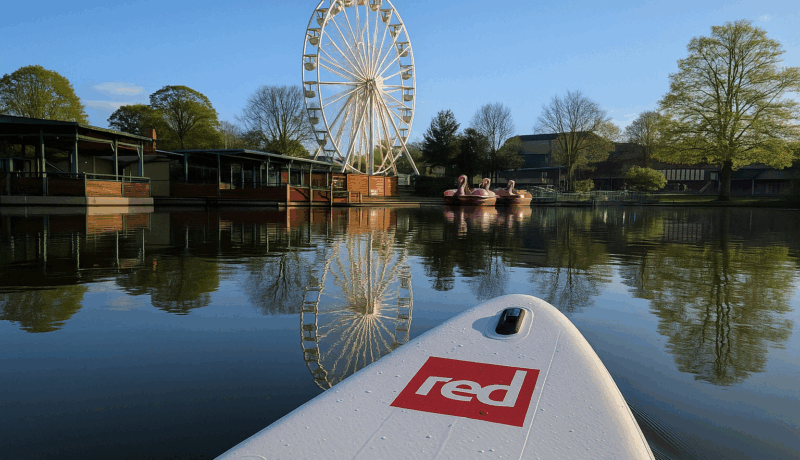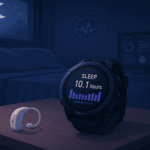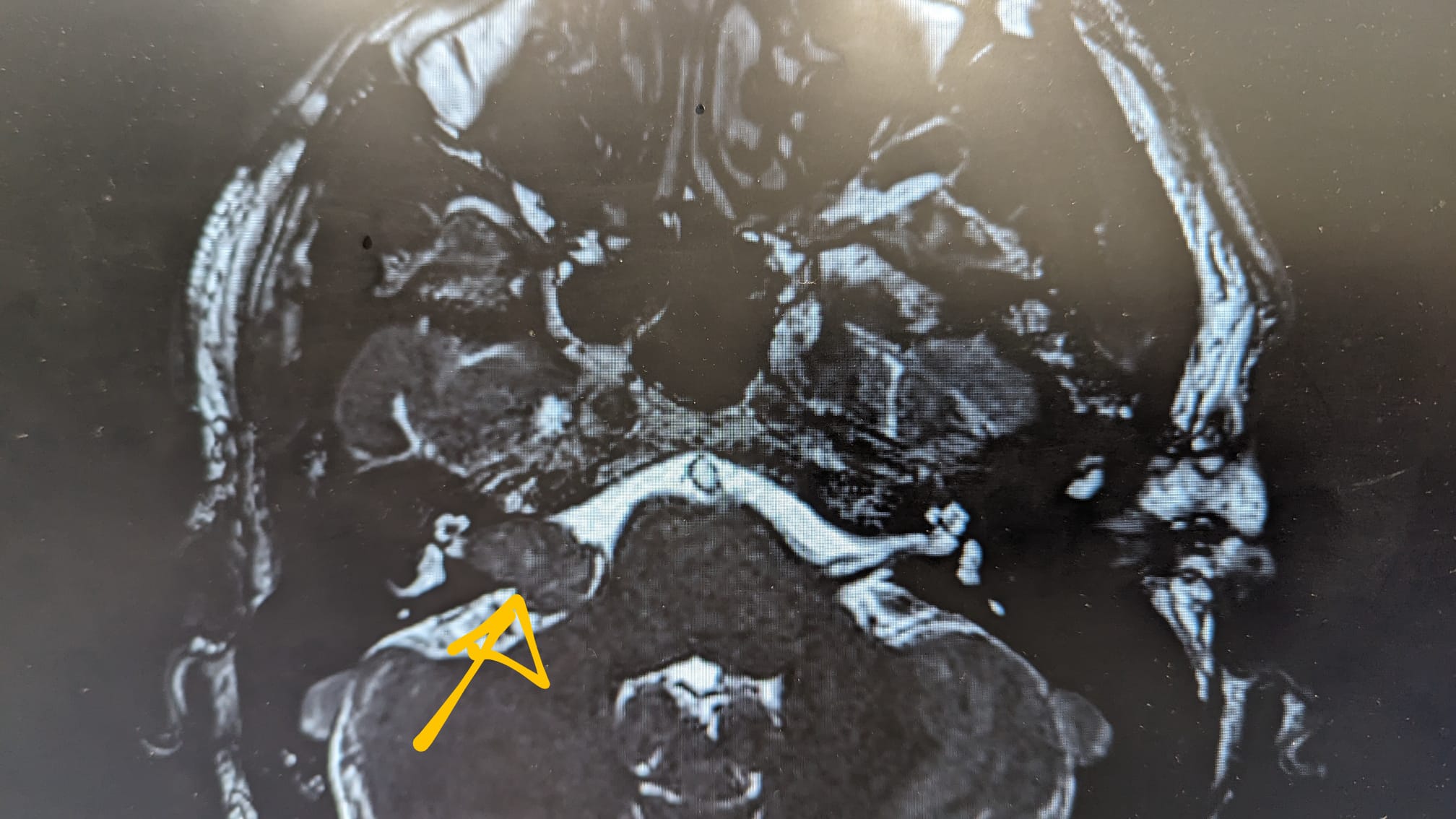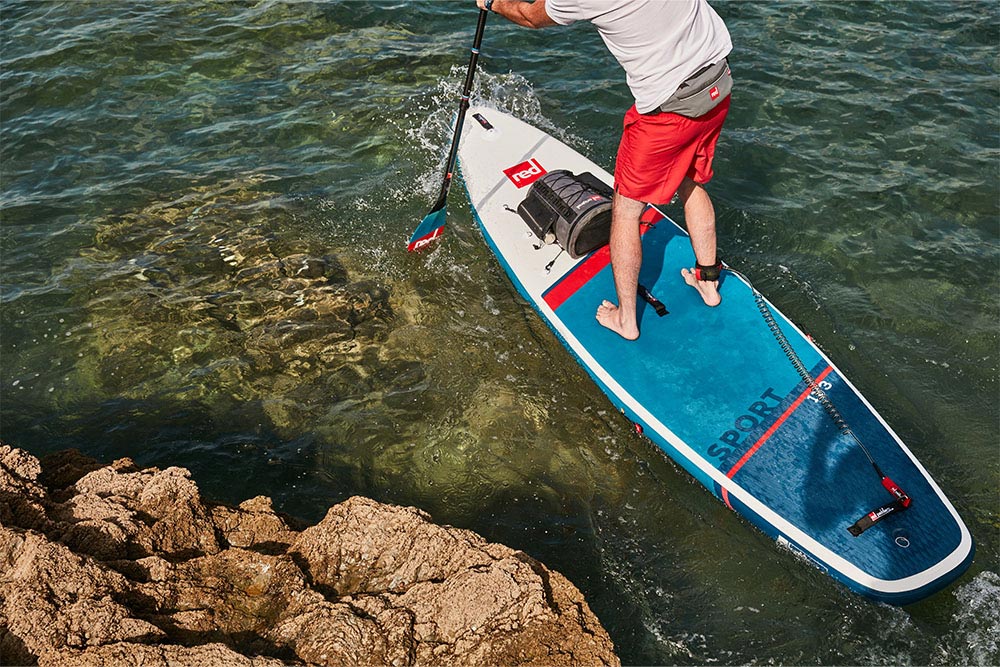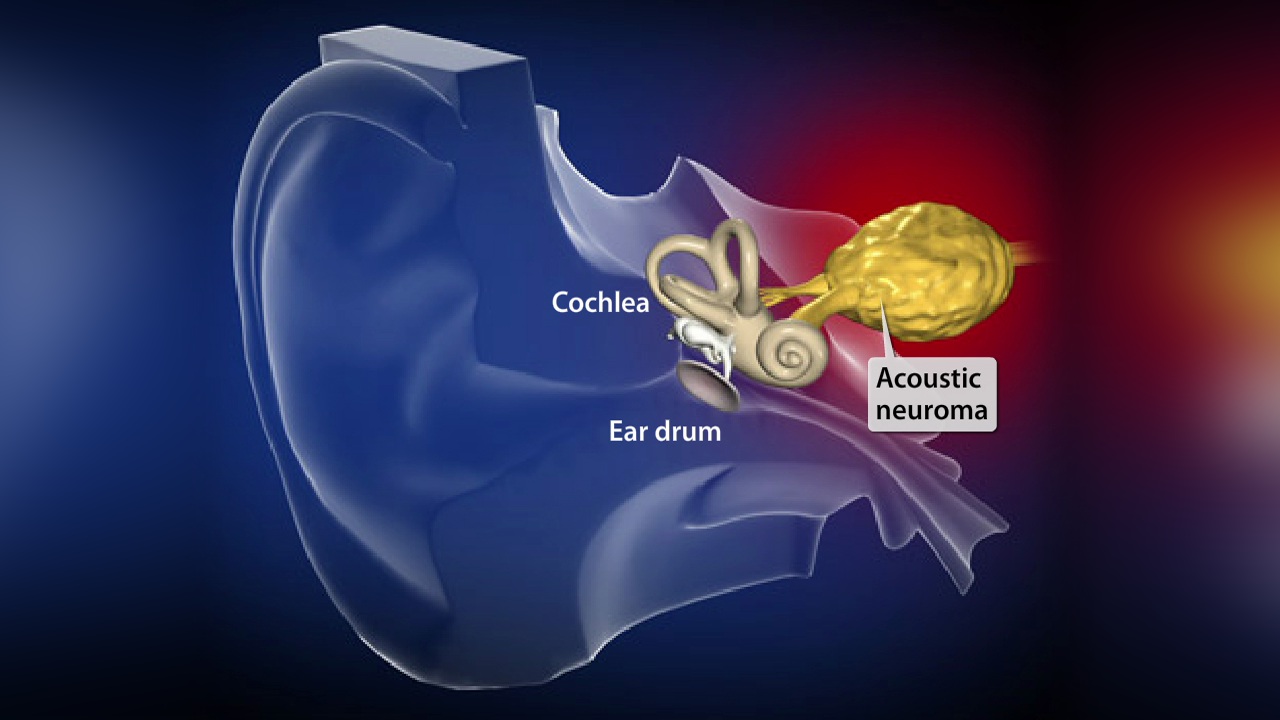Keeping My Balance: How Paddleboarding Helps Me Live With an Acoustic Neuroma
When I was first diagnosed with an acoustic neuroma, one of the first things I wondered—after the shock had worn off—was how it might affect my balance long term. So far, I’ve been lucky. No vertigo, no wobbling through doorways. Just hearing loss on one side, a persistent high-pitched whistle in my head, and the slow, steady work of adapting to life with a brain tumour, “benign” or not.
Table Of Content
- Keeping My Balance: How Paddleboarding Helps Me Live With an Acoustic Neuroma
- Finding Balance – Physically and Socially
- Challenges on the Water (And How I’ve Adapted)
- Tips for Paddleboarding With Hearing Loss or an Acoustic Neuroma
- Why Paddleboarding Helps Me Stay Grounded
- Conclusion: Still Standing
There’s something deeply reassuring about standing on a paddleboard though, gliding across water that becomes my therapy space. It’s evolved from weekend hobby to something essential—keeping me both physically steady and mentally grounded (or perhaps more accurately, afloat). My trusty Red Voyager 13’2″ has become an extension of myself—solid and dependable when I need stability, especially on longer paddles with gear.
Red Voyager 13’2″ — a solid, stable touring board that’s ideal for longer paddles and carrying gear.
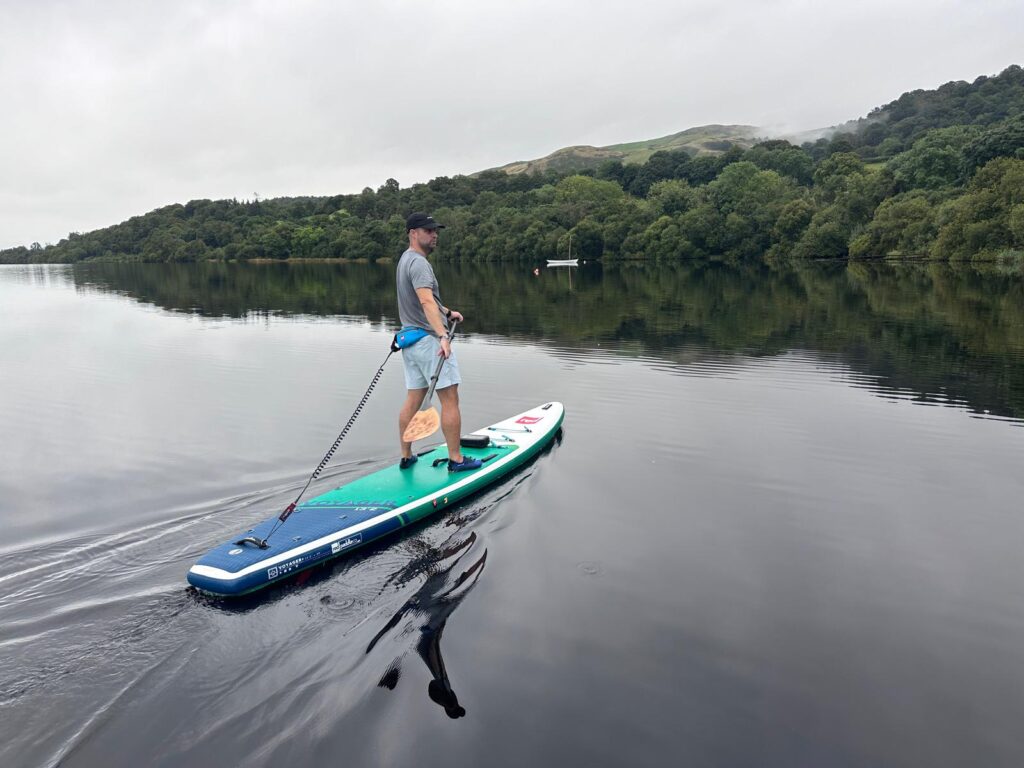
Out on the water without my hearing aid (I’m not risking that expensive tech to splashes), everything simplifies. Just me, my board, the rhythm of paddling, and nature’s ambient soundtrack—which somehow, miraculously, manages to quiet my tinnitus for a while.
Finding Balance – Physically and Socially
I fell in love with paddleboarding years before “acoustic neuroma” entered my vocabulary. What started as a fun way to explore local waterways quickly became my favorite escape. Post-diagnosis, though, SUP took on deeper significance.
When you’re living with something that could potentially mess with your balance, coordination, and hearing, you develop a new appreciation for what your body can still accomplish. Standing confidently on that board, navigating moving water, feeling that sense of control—it matters in ways I never anticipated before.
My Monday and Wednesday evenings with SUP Stratford have become sacred. There’s pure magic in those River Avon sessions—the water’s calm embrace, finding my paddling rhythm, and the easy, unspoken connection with the group. Even without my hearing aid, even missing bits of conversation, I never feel isolated. We speak a different language out there—one that doesn’t always need words – usually whos pushing who off into the water!!
Challenges on the Water (And How I’ve Adapted)
Leaving my hearing aid behind was non-negotiable—I wasn’t about to risk it with spray, rain, or my occasional unplanned swimming sessions (often from the banter of being pushed off the board after pushing another off!). But that choice comes with its complications.
Communication is the obvious hurdle. With one functioning ear and no aid, catching what people say on the water can be tricky, especially from behind me or on windy days. Instructions or friendly banter can disappear into the air. I’ve learned to position myself where I can see faces and stay near people who naturally repeat important information.
Spatial awareness presents another challenge. One-sided hearing makes it nearly impossible to pinpoint where sounds originate—a splash, a shout, a warning call doesn’t give me directional cues anymore. I’ve compensated by becoming more visually vigilant, scanning my surroundings constantly.
Then there’s my constant companion—tinnitus. That relentless ringing never truly vanishes, but paddling is one of the few activities where it recedes to the background. Something about the natural soundscape—paddle splashes, bird calls, flowing water—creates a sensory balance that temporarily quiets the noise in my head.
Tips for Paddleboarding With Hearing Loss or an Acoustic Neuroma
If you’re dealing with hearing loss, tinnitus, or an acoustic neuroma and considering paddleboarding, here’s what’s helped me stay upright and enjoying the experience:
- Tell your group – Let someone know you’ve got hearing challenges, especially if you’re not wearing an aid.
- Positioning helps – Stay where you can see faces, or paddle near someone you trust for cues.
- Use hand signals – Even just a few basic ones go a long way.
- Pick the right board – My Red Voyager 13’2″ is incredibly stable and forgiving, which helps on days when I’m tired.
- Respect your limits – Fatigue affects balance. Don’t be afraid to pause.
- Enjoy the silence – The quiet that comes from leaving the hearing aid behind can be surprisingly soothing.
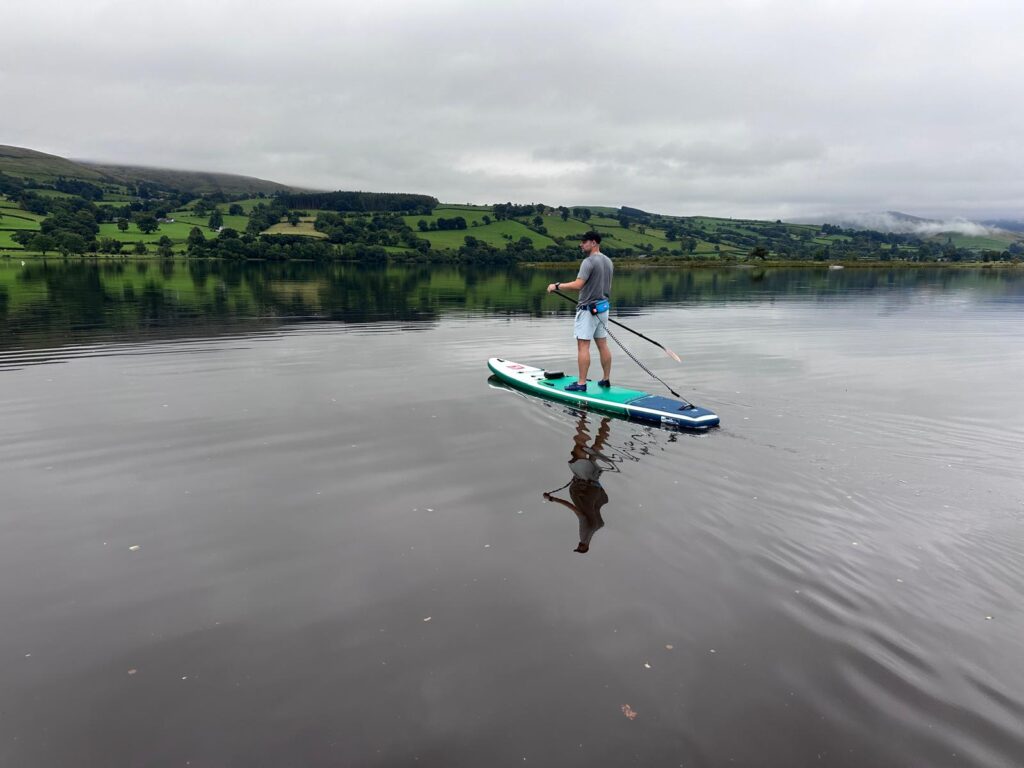
Why Paddleboarding Helps Me Stay Grounded
Living with an acoustic neuroma means constant uncertainty. It’s slow-growing, sure, but that just means more scans, more waiting, and more wondering what might change. Paddleboarding, on the other hand, is immediate. It requires full presence. You’re in tune with every motion, every current, every shift in the wind.
Being on the water reminds me that despite everything, my body still functions. I’m still here, still balanced, still moving forward—literally and figuratively..
Conclusion: Still Standing
Paddleboarding hasn’t just kept me fit—it’s kept me whole. It constantly proves I can adapt, that even with this unwelcome guest in my head and its constant soundtrack, I can find balance, connection, and moments of peace.
If you’re living with an acoustic neuroma — or any condition that makes you second-guess your body — consider giving paddleboarding a go. You might find, like I did, that you’re steadier than you think.

